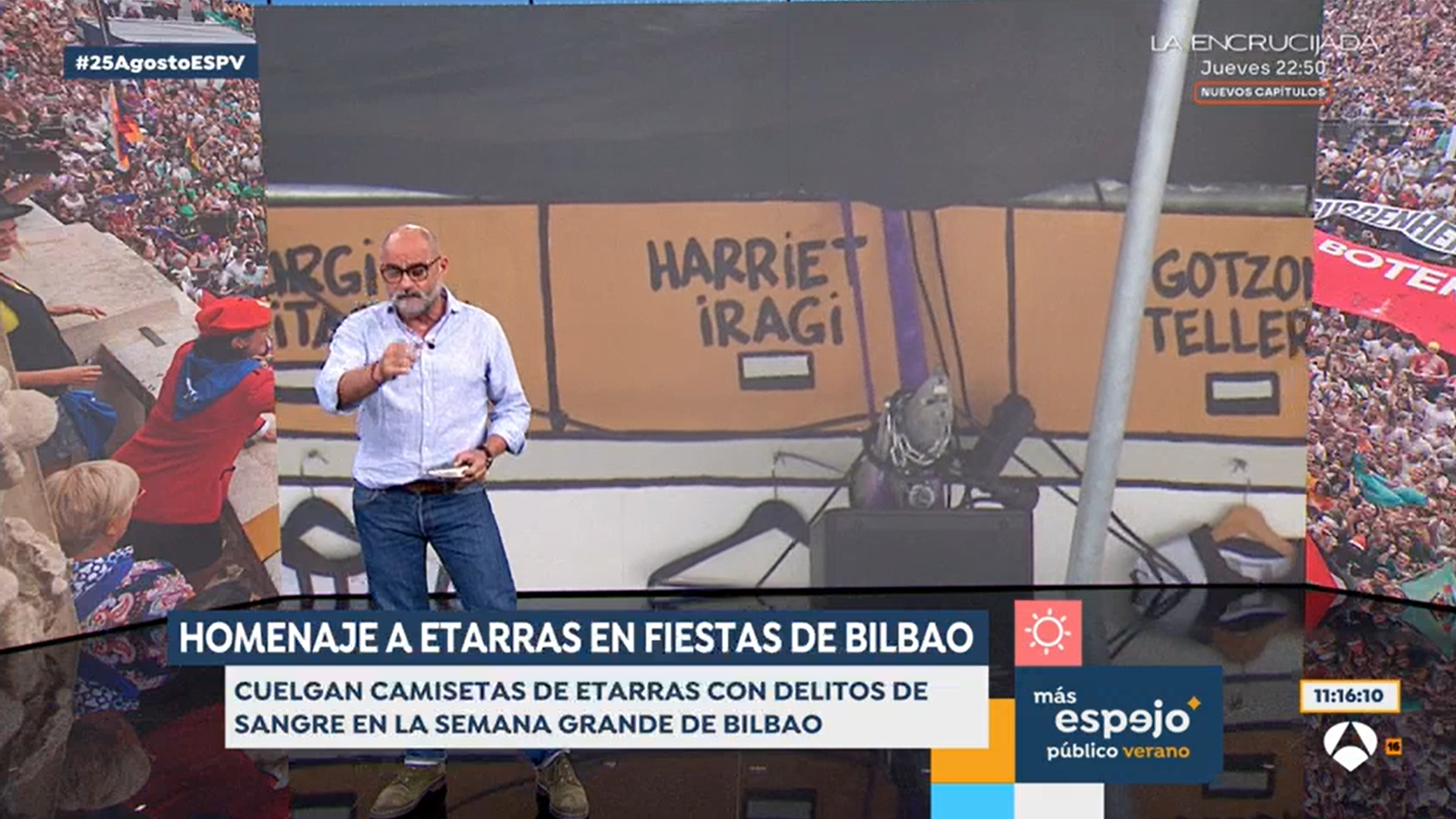

Morning news magazines' penchant for crime stories, dramatic stories, and other gruesome details is a television classic. But in recent weeks, these cases have taken on a much more subtle, informative approach. Let's see, from Telecinco, reported that an arsonist who had started a fire had been released. They also interviewed the mother of one of the victims because the defense had requested the release of the perpetrator. They connected with the mayor of Sant Feliu de Guíxols to explain the problem of recidivism in the town. They have a group of thieves who have been arrested more than forty times and who are quickly released again, causing frustration among citizens and security forces. On Antena 3, in the summer version ofPublic mirror, also reported the release of a man accused of starting a fire. They also reported that during Semana Grande (Big Week) in Bilbao, ETA members with bloody crimes had been honored by hanging their T-shirts in the street. The program interviewed relatives of victims of terrorism to assess this gesture.
The news stories exuded an intention to question the criminal justice system, which is excessively soft on those responsible for crimes. All the news together conveyed the feeling of absolute misrule, a weak state, with ineffective justice, where criminals are given a free hand. This content contributes to fostering a climate of insecurity, a television trend that has often been reinforced by stories about squatting in apartments by elderly people who have been unable to re-enter their homes after going out to shop at the supermarket. Isolated cases, often unrepresentative of broader social problems, are highlighted to convey to the audience the idea that the system is too lenient and, above all, unfair. All of this results in a landscape of criminal impunity, with an ever-increasing spread of crime.
The goal is to reinforce the dichotomy between the good-faith, defenseless, willing, and hardworking citizen and what we might call "the spread of evil" due to an obsolete and useless social and political system. The idea is that justice is disconnected from the interests of citizens, where leniency toward criminals is detrimental to public safety. The police do their job, but the justice system undermines it.
These media outlets delegitimize the criminal justice system in the public eye, fostering the belief that more heavy-handed and more punitive judicial reforms are needed.
These are far from innocent television approaches. They create a discursive framework that fosters ideologies associated with xenophobia and racism, and that use fear to sell the police and social control measures so beloved by the far right.
